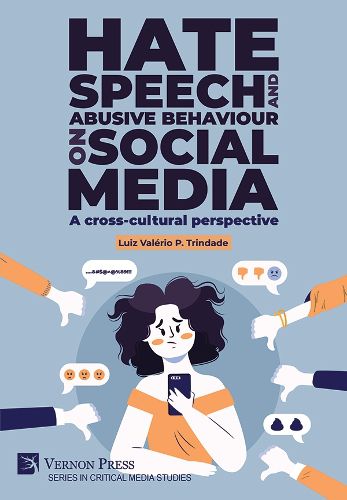Readings Newsletter
Become a Readings Member to make your shopping experience even easier.
Sign in or sign up for free!
You’re not far away from qualifying for FREE standard shipping within Australia
You’ve qualified for FREE standard shipping within Australia
The cart is loading…






This title is printed to order. This book may have been self-published. If so, we cannot guarantee the quality of the content. In the main most books will have gone through the editing process however some may not. We therefore suggest that you be aware of this before ordering this book. If in doubt check either the author or publisher’s details as we are unable to accept any returns unless they are faulty. Please contact us if you have any questions.
The adverse societal impacts of social media platforms comprise a subject of global concern, given that this digital technology has become a breeding ground for the manifestation of varied forms of online harassment and abuse. Yet, most studies exploring this phenomenon have done so predominantly in Anglophone social contexts (notably, the US and the UK).
Thus, the present work examines hate speech and abusive behaviour adopting an innovative cross-cultural perspective. To this end, the book analyses a sample of 108 scholarly papers originally published in three non-hegemonic languages (Italian, Portuguese, and Spanish) and encompassing 11 countries (Argentina, Brazil, Colombia, Costa Rica, Ecuador, El Salvador, Italy, Mexico, Peru, Portugal, and Spain).
In this context, the development of this study highlights the relevance of considering cultural, historical and linguistic factors when analysing hate speech and abusive behaviour on social media. By confronting and evaluating findings from different countries and languages, the study sheds light on how cultural norms and language use shape the manifestation and impact of online harassment and abuse.
Besides, the study also reveals that social media plays the pivotal dual role of catalyst and vehicle for disseminating hate and abuse. As such, they can bring a series of adverse societal impacts upon individuals, vulnerable social groups, society, and democracy. Ultimately, social media platforms allow offenders the capability to unleash and disseminate aggressive and discriminatory ideologies, attracting numerous like-minded people to subvert and disregard any social convention constraints and norms of conviviality. Consequently, one of social media's most significant negative impacts is the undermining of social cohesion.
Therefore, the present book is of interest to students, established scholars, and researchers in various disciplines, including sociology, criminology, media and communication studies, and digital humanities. Moreover, it is recommended reading for policymakers, leaders of non-governmental organisations, educators, journalists, and anyone interested in learning more about social media's impacts on people's lives.
$9.00 standard shipping within Australia
FREE standard shipping within Australia for orders over $100.00
Express & International shipping calculated at checkout
This title is printed to order. This book may have been self-published. If so, we cannot guarantee the quality of the content. In the main most books will have gone through the editing process however some may not. We therefore suggest that you be aware of this before ordering this book. If in doubt check either the author or publisher’s details as we are unable to accept any returns unless they are faulty. Please contact us if you have any questions.
The adverse societal impacts of social media platforms comprise a subject of global concern, given that this digital technology has become a breeding ground for the manifestation of varied forms of online harassment and abuse. Yet, most studies exploring this phenomenon have done so predominantly in Anglophone social contexts (notably, the US and the UK).
Thus, the present work examines hate speech and abusive behaviour adopting an innovative cross-cultural perspective. To this end, the book analyses a sample of 108 scholarly papers originally published in three non-hegemonic languages (Italian, Portuguese, and Spanish) and encompassing 11 countries (Argentina, Brazil, Colombia, Costa Rica, Ecuador, El Salvador, Italy, Mexico, Peru, Portugal, and Spain).
In this context, the development of this study highlights the relevance of considering cultural, historical and linguistic factors when analysing hate speech and abusive behaviour on social media. By confronting and evaluating findings from different countries and languages, the study sheds light on how cultural norms and language use shape the manifestation and impact of online harassment and abuse.
Besides, the study also reveals that social media plays the pivotal dual role of catalyst and vehicle for disseminating hate and abuse. As such, they can bring a series of adverse societal impacts upon individuals, vulnerable social groups, society, and democracy. Ultimately, social media platforms allow offenders the capability to unleash and disseminate aggressive and discriminatory ideologies, attracting numerous like-minded people to subvert and disregard any social convention constraints and norms of conviviality. Consequently, one of social media's most significant negative impacts is the undermining of social cohesion.
Therefore, the present book is of interest to students, established scholars, and researchers in various disciplines, including sociology, criminology, media and communication studies, and digital humanities. Moreover, it is recommended reading for policymakers, leaders of non-governmental organisations, educators, journalists, and anyone interested in learning more about social media's impacts on people's lives.